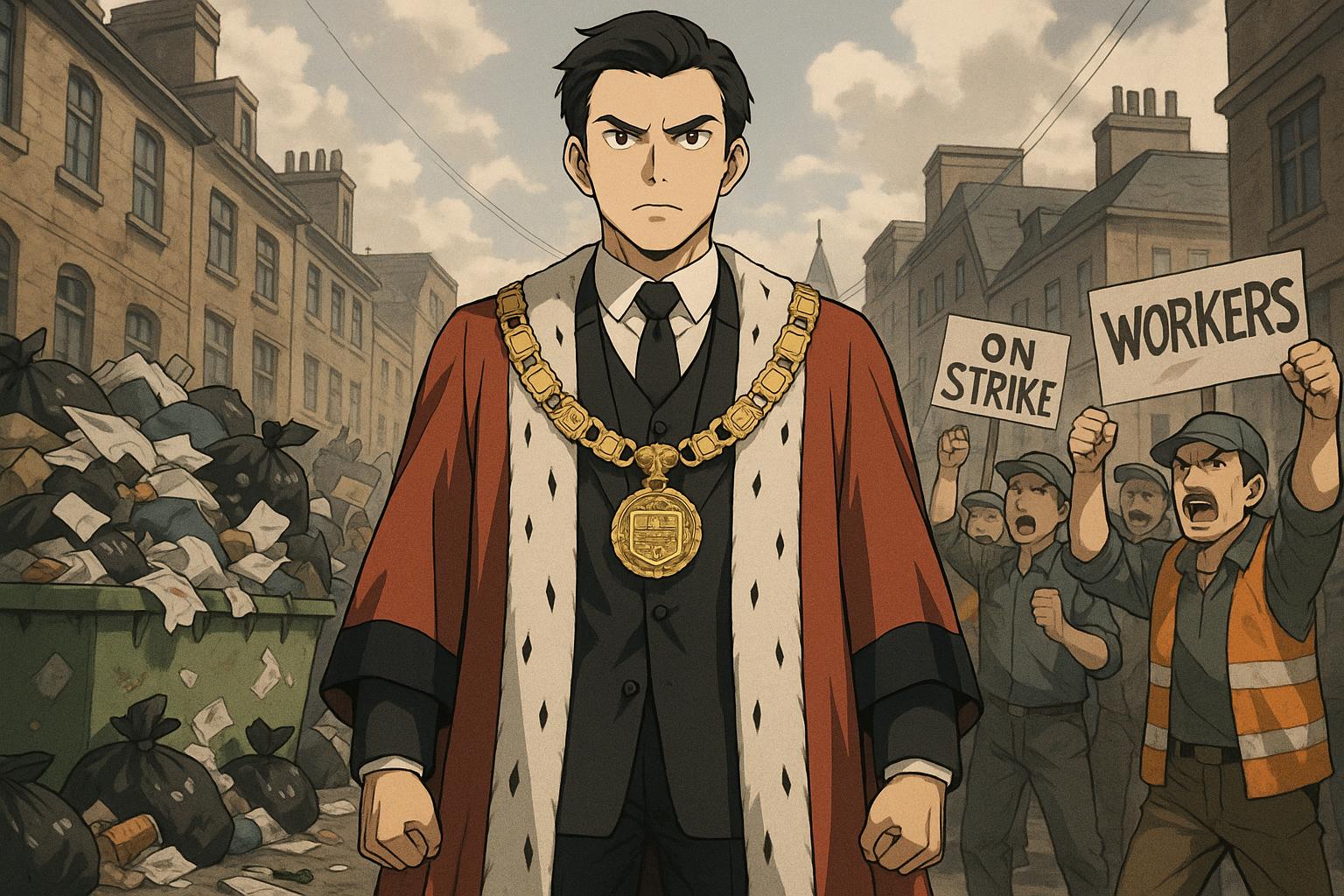The recent election of Birmingham’s new Lord Mayor, Zafar Iqbal, unfolded amidst a backdrop of tensions as protesters disrupted the ceremony to voice their support for striking bin workers. During the event held on May 20, Iqbal was formally embarked upon his duties, which include representing the Birmingham community at various engagements and supporting charitable causes. However, the moment was marred by shouts from the public gallery, reflecting the undercurrent of dissatisfaction that has permeated the city due to ongoing labour disputes.
The strike by Birmingham’s bin workers, initiated in January, has escalated over issues primarily related to pay and the controversial elimination of the Waste Recycling and Collection Officer role. The union, Unite, contends that the removal of this position would result in severe pay cuts, impacting approximately 150 to 170 workers, with reductions as significant as £8,000 annually. In contrast, the Birmingham City Council has asserted that only 17 workers will be notably affected, insisting that all have been offered alternative employment opportunities or training. Council leader John Cotton described the council's position as a “fair and reasonable offer,” resisting any measures that might reactivate past equal pay liabilities.
This dispute has not only disrupted waste collection services but has also led to growing community frustration, illustrated by overflowing bins and the subsequent emergence of public health concerns, including increased infestations of rats. “Could you take an £8,000 pay cut?” one protester shouted during the ceremony, highlighting the grave impact of the dispute on workers and their families. The discontent had escalated to such a degree that local residents have expressed their dissatisfaction by calling for the resignation of councillors, accusing them of mismanagement during the crisis.
In response to these escalating tensions, prominent figures, including West Midlands Mayor Richard Parker, have called for urgent negotiations between the council and the union to resolve the ongoing strike, which has been described as holding the city “hostage.” Residents have likened the situation to living in a “third world city,” with significant health risks owing to uncollected rubbish piling up on the streets. As frustrations mount, the council’s attempts to reassure the public have been met with scepticism and disbelief.
Amid these challenges, Mayor Iqbal, who has been part of the Birmingham community for over 50 years, remained optimistic during his inaugural address. He spoke warmly of Birmingham’s diversity and the contributions of its citizens, stating, “It is the most amazing place in the world, attracting people like me from every corner of the globe and turning them into Brummies.” He pledged to champion Birmingham’s values and work towards inspiring the next generation of leaders.
As the new Lord Mayor takes office, the pressing need for resolution to the bin strike remains a crucial issue. The ongoing unrest serves as a poignant reminder of the complex relationship between local governance and community welfare, with the eyes of many now fixed on potential paths forward that both address the immediate concerns of striking workers and restore the city’s operational integrity.
Reference Map
Source: Noah Wire Services
